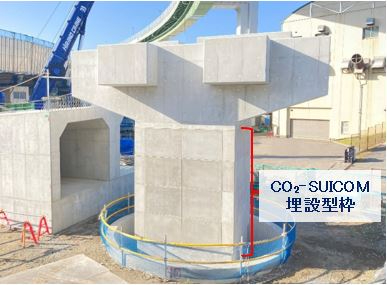J-STORIES ー 受惠於新冠防疫措施放寬以及2022年以來持續的日圓貶值等因素推動,東京正提升其作為世界觀光城市的存在感。
根據市場調查公司發布的2023年度全球旅遊城市排名,東京從2022年度的第20名躍升至第4名。東京都公布的數據也顯示,外國觀光客人數和觀光消費金額均創下歷史新高。
在此背景下,作為進一步提升東京國際旅遊城市競爭力的嘗試,開始運用日本引以為傲的數位技術打造全新觀光資源,其中之一就是投影映像技術(Projection Mapping)。
影像投影在東京都廳第一本廳舍東側外牆進行展演。民眾可免費觀賞,除惡劣天候外,每日日落後進行數場放映。

在寬110公尺、高126公尺(約14,000㎡)的巨大外牆上,使用40台投影機進行投影,並以「建築物投影映射展示最大規模(常設)」獲得金氏世界紀錄認證。

投影內容豐富多元,包括近100公尺高的哥吉拉襲擊都廳的「哥吉拉都廳襲擊」,以及以自然與人類和諧為主題的最新作品「協同效應(Synergy)」等,至今已創作10部作品。

這些投影內容迅速吸引海外觀光客關注,其中最受歡迎的哥吉拉投影每日吸引約1萬名觀眾,投影展演開始4個月以來累計約24萬人次前往觀賞,已成為東京全新觀光景點。


來自奧地利的觀光客薩姆·梅德里斯特先生(Sam Medrist)與家人一同造訪,他滿意地向J-STORIES表示:「白天我們在晴空塔觀光,聽說這裡的傳聞後決定晚上來這裡觀光。我們很享受這場表演。」
來自台灣的張宇(Chang Yu)表示,他是從網站上得知這個活動,並與土耳其友人一同前來觀賞。他說:「這是第一次看到這麼大規模的投影映像,真的很棒,想推薦給我的朋友們。」
製作及播放這種巨大規模投影映射的年度預算約為7億日圓,在社群媒體等平台上也出現「浪費公帑」等批評聲浪。

對此,東京都在接受J-STORIES採訪時反駁表示,投影映射是「透過高度藝術性和世界領先技術提升都市價值的日本殺手級內容,作為東京重要觀光資源的運用不可或缺」。東京都指出,在「世界都市綜合實力排名」中,東京綜合排名第3位,但「夜生活充實度」僅排第30位,「要進一步提升東京魅力,振興夜間觀光的活性化至關重要」。
值得注意的是,都廳廳舍內全日拉上遮光窗簾,因此投影映射開始後對業務並無影響。日落後仍在工作的都廳職員表示,雖然能從窗簾縫隙透入的微光和聲音得知活動開始,但並不特別在意,照常進行加班工作。
報導:一色崇典 編輯:前田利継
首圖及影片拍攝:阿德麗娜·班查 攝影
如對本文有任何疑問,請洽詢: jstories@pacificbridge.jp。
***
本文章的英文版可以從這裡查看。



![[Podcast] 日本で外国人がスタートアップを成功させるには](https://storage.googleapis.com/jstories-cms.appspot.com/images/1727340966966building-a-start-up-in-japan_smallthumbnail.jpg)















![[PODCAST] 如何打造成功的新創企業社群(第2集)](https://storage.googleapis.com/jstories-cms.appspot.com/images/1748493203370business-man-holding-light-bulb-social-network-2024-10-31-22-37-36-utc_smallthumbnail.jpg)


